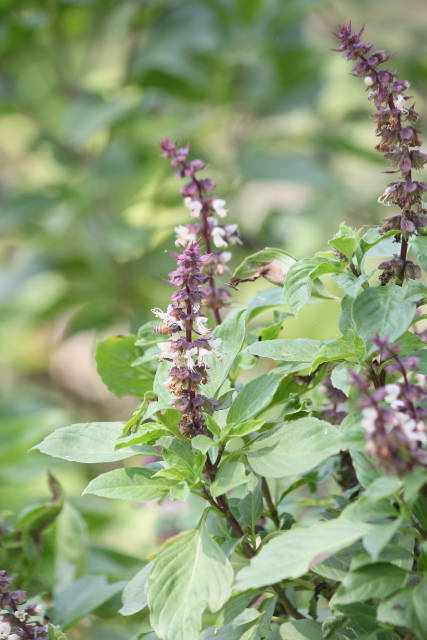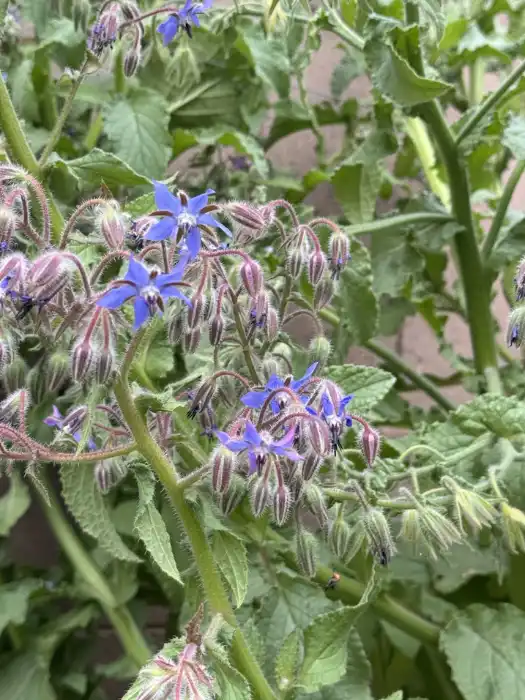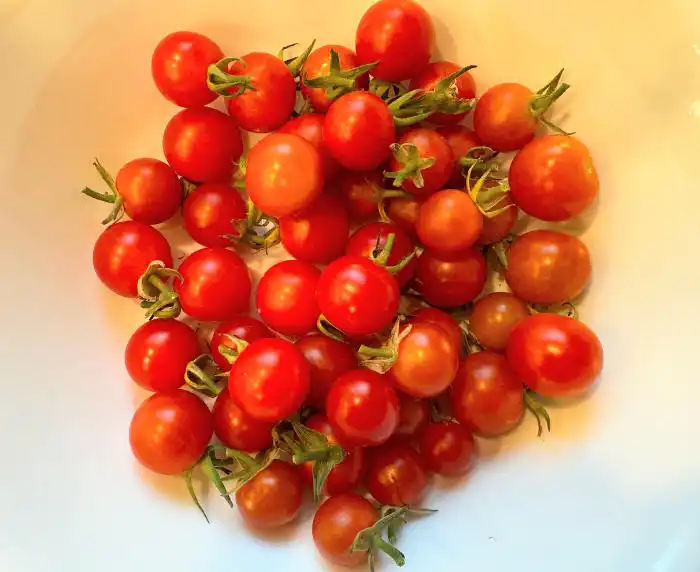What makes a great tomato companion plant? If you’re just starting out with your garden and looking to grow some delicious, juicy tomatoes, you’re in for a treat. Not only are tomatoes fantastic on their own, but they also love having certain plants around them.
This post may contain affiliate links. Please see my disclosure policies. If you purchase after clicking an affiliate link we may receive small commission at no cost to you. As an Amazon Associate I earn from qualifying purchases.
Companion Gardening for Tomatoes
Mutually beneficial tomato companion plants include:
- asparagus
- basil
- borage
- carrots
- chives
- garlic
- lettuce
- marigolds
- nasturtiums
- parsley
- spinach
Asparagus
Asparagus and tomatoes have a mutually beneficial relationship. Asparagus deters nematodes, which can damage tomato roots. In return, tomatoes produce a chemical that repels asparagus beetles, making this a win-win partnership.
Basil
Tomatoes and basil are a classic combo, not just in the kitchen but also in the garden. Basil can help repel harmful insects like mosquitoes and flies.
As an extra plus, it’s believed to improve the flavor of your tomatoes. So, when you pick those ripe red beauties, they’ll taste even more amazing.
Borage
This herb might not be as well-known, but it’s a powerhouse in the garden. Borage attracts beneficial insects like bees, which help with pollination. It also deters tomato hornworms, a common pest that can cause significant damage to tomato plants. Additionally, borage can improve the soil quality by adding trace minerals.
Carrots
Tomatoes and carrots have complementary root systems. Carrots grow deep into the soil, breaking up hard ground and allowing tomato roots to access more nutrients and water. They also help to aerate the soil, promoting better growth for your tomato plants.

Chives
Chives are easy to grow and have a subtle but effective protective quality. They can repel aphids and other pests. Plus, their flowers attract beneficial insects like bees and predatory wasps, which help keep the pest population in check.
Garlic
Garlic has a strong aroma that many pests find unpleasant. Planting garlic near your tomatoes can help deter spider mites and aphids. It also has natural antifungal properties, which can protect your tomatoes from diseases like blight.
Lettuce
Lettuce is a low-growing plant that makes a great ground cover. It helps to keep the soil cool and moist, which is perfect for the shallow roots of tomato plants. Lettuce can also help suppress weeds, reducing competition for nutrients.
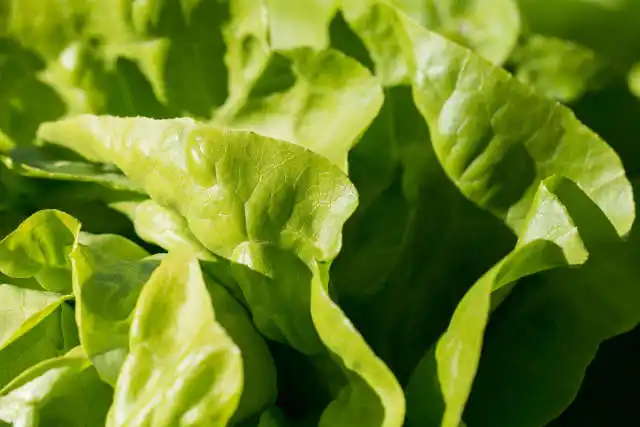
Marigolds
Marigolds are like the bodyguards of the garden. These vibrant flowers release a substance that can deter nematodes (those pesky microscopic worms that love to munch on tomato roots). They also repel aphids, whiteflies, and even certain beetles, keeping your tomato plants safe and sound.
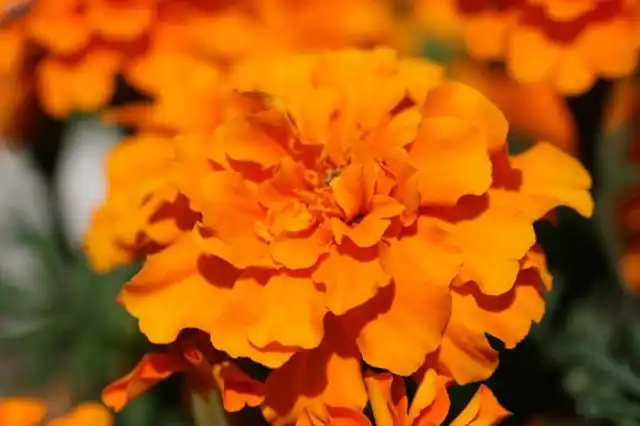
Nasturtiums
Nasturtiums are not just pretty faces in the garden. They act as a trap crop, attracting aphids away from your precious tomatoes. Plus, their bright flowers add a pop of color to your garden and can even be eaten in salads!
Spinach
Spinach is another fantastic ground cover plant. Like lettuce, it helps keep the soil cool and moist. Spinach also matures quickly, so you can harvest it early and give your tomatoes more room to spread out as they grow.
How to Plant Tomato Companion Plants
Make sure you give each plant enough space to grow. Tomatoes need a bit of room to stretch out, so don’t crowd them too much. Generally, leave about 18-24 inches between tomato plants and their companions.
Before planting, enrich your soil with compost or organic matter to give your plants a good start. Well-draining soil is essential for healthy tomato growth.
Water your tomato plants at the base to avoid wetting the leaves, which can lead to fungal diseases. Most companion plants will benefit from similar watering habits.
Use mulch around your tomato plants to retain moisture, suppress weeds, and keep the soil temperature stable. This also benefits most of the companion plants mentioned.
Gardening Tips
- To prevent soil depletion and reduce pest problems, rotate your crops each year. Avoid planting tomatoes in the same spot for at least three years.
- Even with companion plants, it’s essential to regularly check your garden for pests. Handpick any visible ones and use organic pest control methods if necessary.
- Keep an eye on your tomatoes and other plants, harvesting them as they ripen. This encourages more production and keeps your plants healthy.

